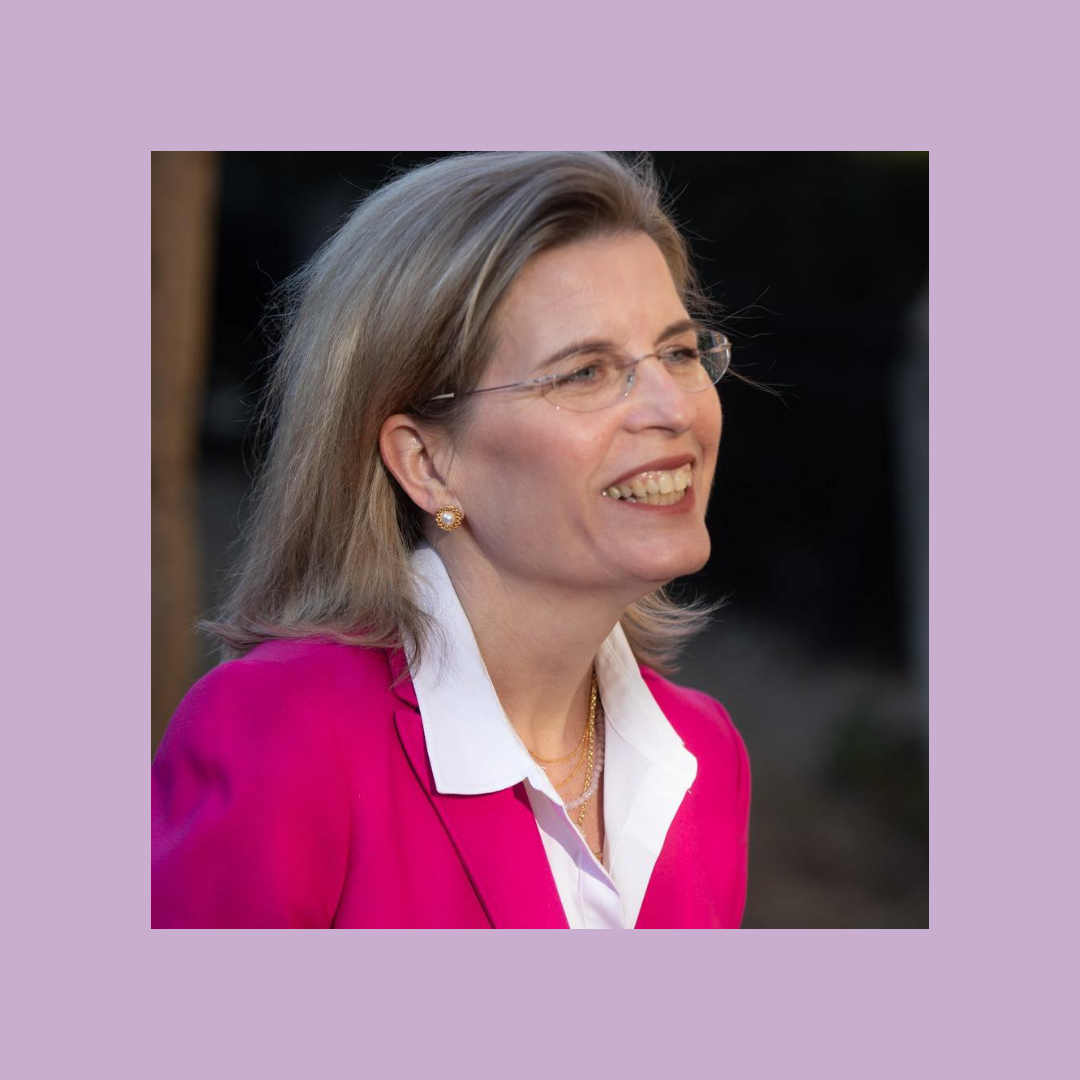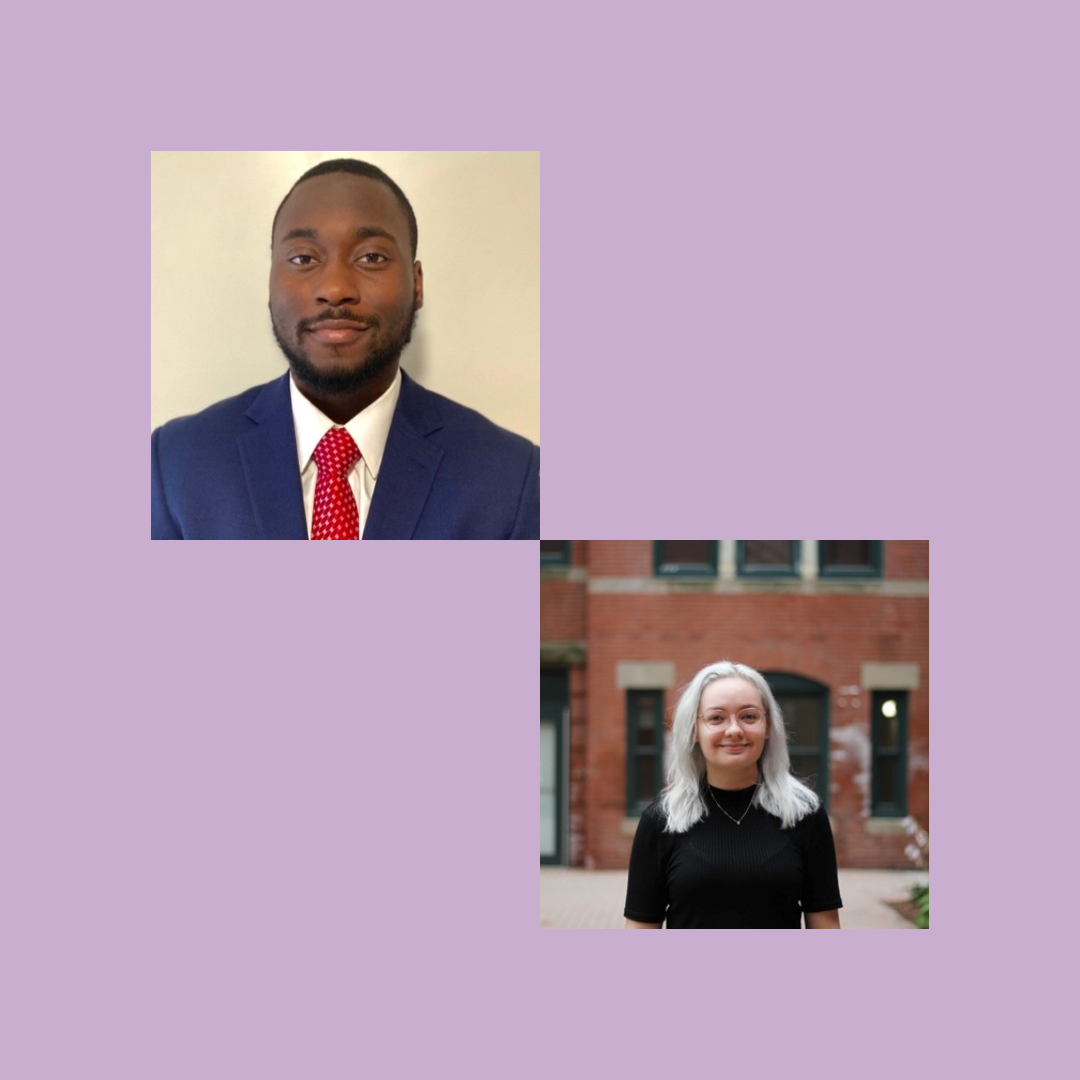Speakers
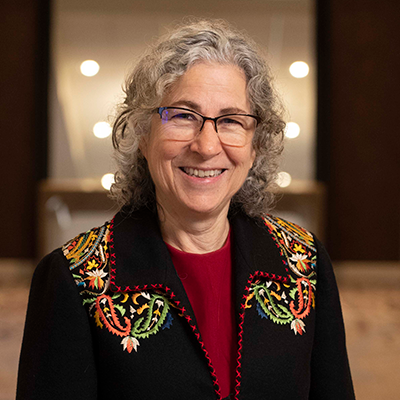
Linda Hill
Distinguished Professor, Assistant Dean, Herbert Wertheim School of Public Health, UC San Diego
Linda Hill, MD, MPH is a Distinguished Professor and Assistant Dean in the Herbert Wertheim School of Public Health at UC San Diego. She is the Executive Director of the Asylum Seeker Medical Screening and Stabilization Program. She is the Immediate Past Director of the UCSD/SDSU General Preventive Medicine Residency, and Senior Staff Physician at San Diego Family Care, an FQHC. She is the Director of the UCSD Center for Human and Urban Mobility and the Training Research and Education for Driving Safety centers. Dr. Hill’s research focuses on displaced populations and transportation safety.
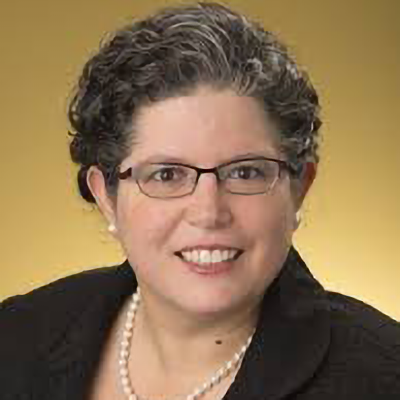
Darlene Xiomara Rodriguez
Associate Professor, Kennesaw State University College of Health and Human Services; Co-Director, Georgia Immigration Research Network
Dr. Darlene Xiomara Rodriguez is an Associate Professor in Social Work and Human Services at Kennesaw State University’s (KSU) Wellstar College of Health and Human Services. She is one of KSU’s first Diversity Fellows through the Office of Diversity and Inclusion’s Center for Diversity Leadership and Engagement (2017) and served as the Gender and Diversity Scholar for the KSU Children and Family Program’s Two-Generation Initiatives (2020-2021). Since 2015, she has been the co-principal investigator for the Atlanta Immigrant Crossroads Project—a vertically integrated, multi-university campus and community partnership, which has spun various community-university partnerships and community-based research projects to inform and implement best practices for immigrant integration throughout Georgia.
Selected projects that she has led/co-led include founding the Georgia Immigration Research Network and the development of an Immigrant Integration Toolkit for the state. She also co-edited, Green Card Youth Voices: Stories from an Atlanta High School (Ingram/Consortium Publishers). This led her to curate a travelling art exhibit, based on the book. Over 2 million people, most notably at the Hartsfield-Jackson Atlanta International Airport, the National Center for Civil and Human Rights, and the Woodruff Arts Center, experienced the exhibit. These efforts resulted in her team receiving the inaugural RACES Outstanding Student Research and Creative Accomplishment Project Award from the University System of Georgia’s Board of Regents (2019). Her collaborations with Welcoming America, garnered her national praise, when voted runner-up for the “Academy Award” for Macro-Social Work in the U.S.: The Jack Rothman Award for Structural Change Practice (2022).
Dr. Rodriguez’s research focuses on immigrant integration and the nonprofit sector’s role in facilitating it, specifically, the deployment of nonprofits as both service and advocacy partners for policy change. She has delivered keynote addresses, conference presentations, and facilitated workshops, in English and Spanish, at over 100 venues at the international, national, state, and local levels. She has over 50 peer-reviewed and practitioner publications to her credit and has earned over $350,000 in grants. This resulted in her being selected by the KSU community for the highest recognition by the Presidential Commission on Racial and Ethnic Diversity, the R.O.H. Social Justice Award for her contributions to KSU’s teaching, research, and public service missions in the name of justice, equity, diversity, and inclusion (2020).
Her decades of applied research and public service in Georgia were recognized by the Georgia Hispanic Chamber of Commerce when they named her one of the “50 Most Influential Latinos in Georgia” (2019). The Latin American Association identified her as one of the most prominent leaders in the state and her image was added to the “Emblematic Flag” of Latino Leadership (2020). Nationally, her work in the community along with her research and mentoring contributions were recognized by the Omicron Delta Kappa (OΔK) National Leadership Honor Society when she received the inaugural Community Commitment Award for Diversity, Equity, and Inclusivity (2021).
Her teaching interests include nonprofit management and leadership, public policy, and civic engagement. She has developed and taught courses in fund development and nonprofit sustainability, human resources management, program development and evaluation, research methods, and social welfare policy, as well as internship, senior capstone, and service-learning courses. Dr. Rodriguez is known for her high expectations and rigor, which is matched by her level of investment in her students as they become her colleagues. Consequently, 90% of her students are gainfully employed in the sector upon graduation and/or are admitted into graduate/post-graduate study.
Dr. Rodriguez’s classroom instruction has been evaluated by four centers for excellence of teaching and learning throughout the U.S., and she has consistently received outstanding recognition for her mastery of high-impact practices. Her over 25 years as an educator resulted in her recognition and selection as a Georgia Governor’s Teaching Fellow (2019) and nationally she was competitively selected as the recipient of the Council on Undergraduate Research’s Excellence in Mentoring Undergraduate Research in the Social Sciences Award (2022).
Prior to coming to KSU, Dr. Rodriguez was the Director of the Arts and Not-for-Profit Management Programs at Salem College (Winston-Salem, NC). She was a Goizueta Foundation Fellow through the Center for Latino Achievement and Success in Education (CLASE) and the statewide coordinator for the Latino Youth Leadership Program through the J.W. Fanning Institute. Dr. Rodriguez also has a long record of servant leadership and administration in college student development and enrollment management (i.e., campus ministries, institutional development, multicultural student affairs, women’s empowerment programs, and student volunteer engagement).
Dr. Rodriguez earned her doctorate in Public Administration and Policy and a Master of Social Work in Macro-level Community Practice from the University of Georgia. She earned a Master of Public Affairs, with a concentration in Nongovernmental Organizations at Rutgers University through the Peace Corps’ Masters International Program. She earned her B.A. in Liberal Studies and Psychology, with a minor in Women’s Studies and Environmental Science from Florida International University. She, along with her husband and son reside in Marietta, GA and are active members of several community organizations, most importantly Eastside Baptist Church.

Paul Spiegel
Director, Center for Humanitarian Health, Distinguished Professor of the Practice, Johns Hopkins Bloomberg School of Public Health
Dr. Spiegel, a Canadian physician and epidemiologist, is one of the few humanitarians in the world that both responds to and researches humanitarian emergencies and migration. He is the Director of the Johns Hopkins Center for Humanitarian Health and Distinguished Professor of the Practice in the Department of International Health at the Johns Hopkins Bloomberg School of Public Health.
Before Hopkins, Dr. Spiegel was Deputy Director of Program Management & Support and Chief of Public Health at the United Nations High Commissioner for Refugees. He previously worked as a Medical Epidemiologist in the International Emergency and Refugee Health
Branch at the Centers for Disease Control and Prevention and as a Medical Coordinator with Médecins Sans Frontières and Médecins du Monde in refugee emergencies. Dr. Spiegel has published over 230 publications on humanitarian health, migration and human rights. He is currently Chair of the CHH-Lancet Commission on Health Conflict and Forced Displacement, co-chair of Lancet Migration, and Co Technical Director of EQUAL.
Dr. Spiegel’s extensive experience in leading humanitarian responses in the United Nations and with non-governmental organizations combined with his academic work has made him a global leader in bridging operations and academia in humanitarian health.

Lawrence H. Yang
Professor and Chair, Department of Social and Behavioral Sciences, New York University School of Global Public Health
Dr. Lawrence Yang is Professor and Chair of the Department of Social and Behavioral Sciences; Associate Director of the Global Center for Implementation Science at NYU; and Founding Director of NYU’s Global Mental Health and Stigma Program. He is also PI of a generous donor gift from the Li Ka Shing Foundation to fund an initiative to promote Global Mental Health and Wellness.
Dr. Yang has received extensive interdisciplinary training, including clinical psychology (Boston University), psychiatric epidemiology (Columbia University) and medical anthropology (Harvard University). Dr. Yang has received six national awards in stigma, including the Maltz Prize for Innovative and Promising Schizophrenia Research in 2021 (Brain and Behavior Research Foundation; see link). Dr. Yang has >170 peer-reviewed publications, including in journals such as JAMA Psychiatry, British Journal of Psychiatry, and the American Journal of Public Health. Regarding currently-funded NIH grants, he is PI of three separate R01 grants (below), is multiple PI of a D43 grant in Vietnam, and is co-investigator on 4 R01 grants and another R34 grant. Lawrence is also applying his expertise to address the novel topic of “Migration Stigma”, where he led a think tank and conference sponsored by the prestigious Ernst Strüngmann Forum (June, 2022; see link), which has resulted in a recently-published book by MIT press (Migration Stigma (mit.edu)). Brief Research Narrative: If every public health researcher had a calling card, Dr. Lawrence Yang’s would be stigma.
What began as a curiosity to think, study and write about his own culture — Chinese culture and its influences on how stigma is expressed– drove the GPH Professor to develop a framework for how stigma acts to impede social recovery that could be applied to cultural groups to improve the lives of countless people with mental illness and their families around the world. Dr. Yang also conducts several ongoing research studies on the forefront of global mental health and implementation science.
Building upon dissertation research conducted in Beijing, China, Lawrence initiated his stigma research via an NIMH K-award (2005-2010). Lawrence conducted a study in New York City of how stigma shapes the course of mental illness among Chinese immigrants. Lawrence formulated how culture relates to stigma–i.e. the “What Matters Most” framework—to help implement interventions to improve recovery for stigmatizing conditions. He learned that upholding face (to achieve lineage obligations) was essential, as it is for Asians in many countries. Lawrence then formulated an anti-stigma intervention to help people with mental illness take a powerful step towards regaining face. To inform global programs, Lawrence then applied the ‘what matters most’ approach to HIV stigma in Botswana. Lawrence identified that “womanhood” in Botswana is signified by “having and caring for children” (AJPH, 2021). These cultural imperatives bring pregnant women into contact with free antenatal services, including routine HIV testing, where their HIV status is discovered before their male partners, leading women diagnosed with HIV to be blamed and stigmatized. Lawrence used this framework in a completed NIMH-funded R21 grant to implement an intervention to counter culturally-salient aspects of HIV stigma that impede anti-retroviral treatment. This stigma intervention, by utilizing the perspective that a woman in Botswana who achieves ‘what matters most’ can be protected from HIV stigma, has shown promising results. Lawrence has received a new R01 (R01 TW012402) to expand this intervention for use with women with HIV with serious mental illness in Botswana. He also participated as a Scientific member of the “NIH Office of AIDS Research & NIMH HIV-Related Intersectional Stigma” Working Group (2020).
Lawrence has advanced global mental health research in China as PI of two NIMH-funded R01 studies (R01MH108385; R01 MH127631) with co-PI’s, Dr.’s Michael Phillips, William Stone and Matcheri Keshavan, seeking to characterize the cognition of completely untreated psychosis in China. Recently, China has implemented programs to detect untreated psychosis countrywide. Ascertaining participants in rural China, the study has enrolled~ 300 untreated psychosis participants, who are then matched with ~300 treated psychosis participants and an additional ~300 healthy control participants. The study’s first publication shows that cognitive performance may continue to decrease as the duration of untreated psychosis becomes prolonged (JAMA Psychiatry, 2020), thus potentially shifting the scientific thinking about schizophrenia by suggesting possible novel neurodegenerative processes in the natural course of chronic psychosis. A 3-year Supplement also examines the neurobiological markers of untreated psychosis to validate three psychosis subgroups that exhibit neurobiologically distinct differences (or ‘biotypes’). A follow-up longitudinal, 5-year R01 proposal (2021-2026) to capitalize upon this rare cohort has been recently funded by NIMH.
Relevant to implementation science, Lawrence leads a project to help address the gap in global mental health treatment among those who need but do not receive care for mental disorders, which is disproportionately high in low- and middle-income countries. There has been a call to scale-up mental health services via sharing of mental health care with a broader array of nonspecialists (e.g., community health workers). Yet, knowledge on how to successfully implement task-sharing mental health strategies in real-world settings is lacking. Lawrence is PI of a third NIMH-funded R01 (with co-PI, Dr. Judy Bass; R01 MH122851) to validate a newly-developed measure that enables rapid assessment of modifiable critical factors affecting the implementation of task sharing mental health strategies. This R01 is based upon the “Shared Research Project”, where Dr.’s Yang and Bass examined the barriers and facilitators to scale-up task-sharing interventions in four previous, NIMH-funded global regional networks spanning 4 global hubs (i.e., Latin America; Africa, and India/ Pakistan). This current study will validate this measure within three additional, ongoing NIMH-funded task-sharing mental health programs in South Africa, Chile, and Nepal, thus advancing implementation science globally.
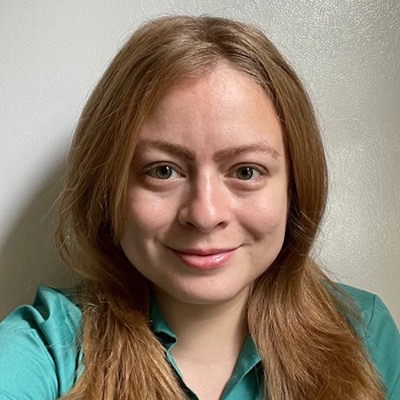
Sarah Betancourt
Reporter, GBH News
Sarah Betancourt is a bilingual reporter for GBH News, and longtime Boston muckraker. She was a reporter for CommonWealth Magazine, and senior immigration reporter for Law360. She’s covered politics, immigration, incarceration, and health for The Guardian, DigBoston, The Boston Globe, and The Associated Press. Sarah received a 2018 Investigative Reporters and Editors Award for researching the ProPublica/NPR story, “They Got Hurt at Work and Then They Got Deported,” which explored how Florida employers and insurance companies got out of paying undocumented workers compensation benefits by having them arrested or deported. She’s a graduate of Emerson College and Columbia University, and a member of the National Association of Hispanic Journalists.
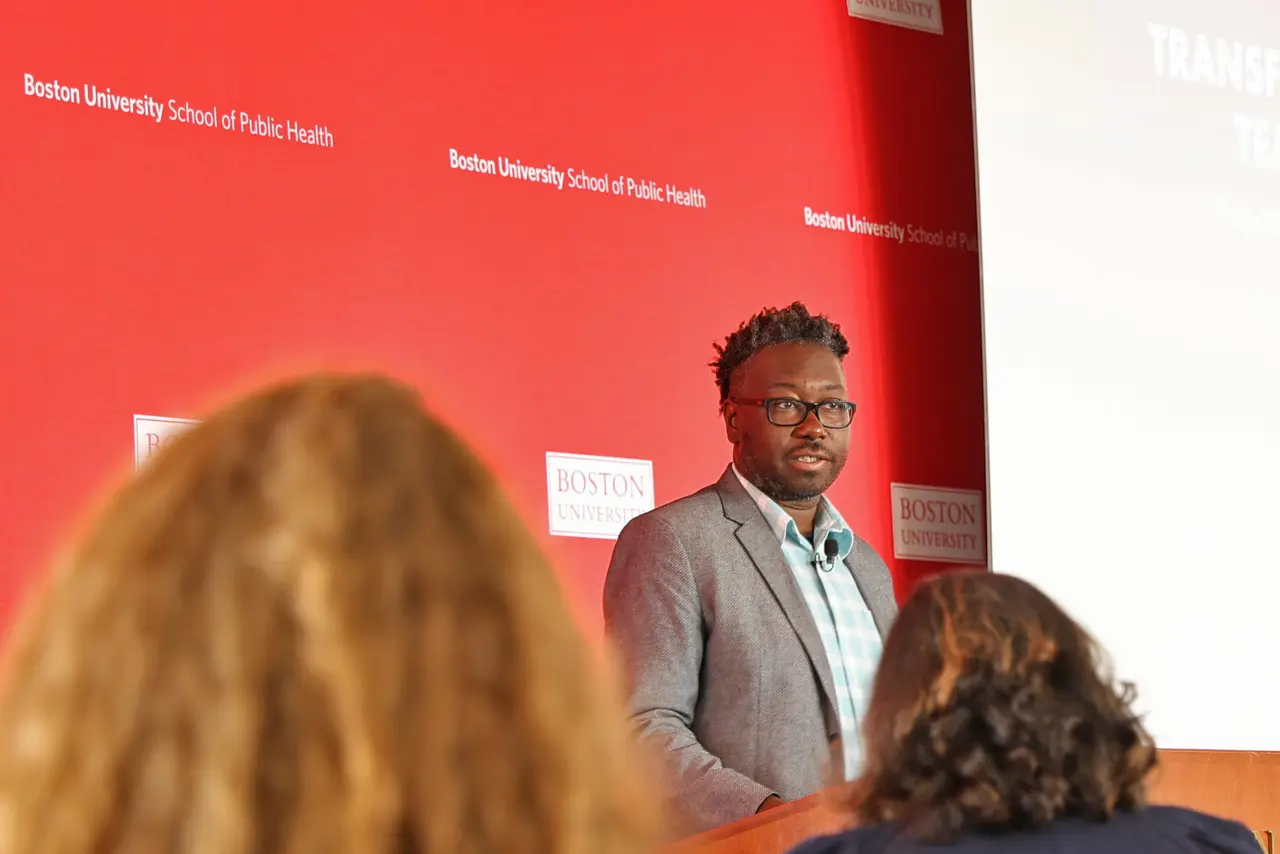
Subscribe to PHC
Get the latest from Boston University School of Public Health


